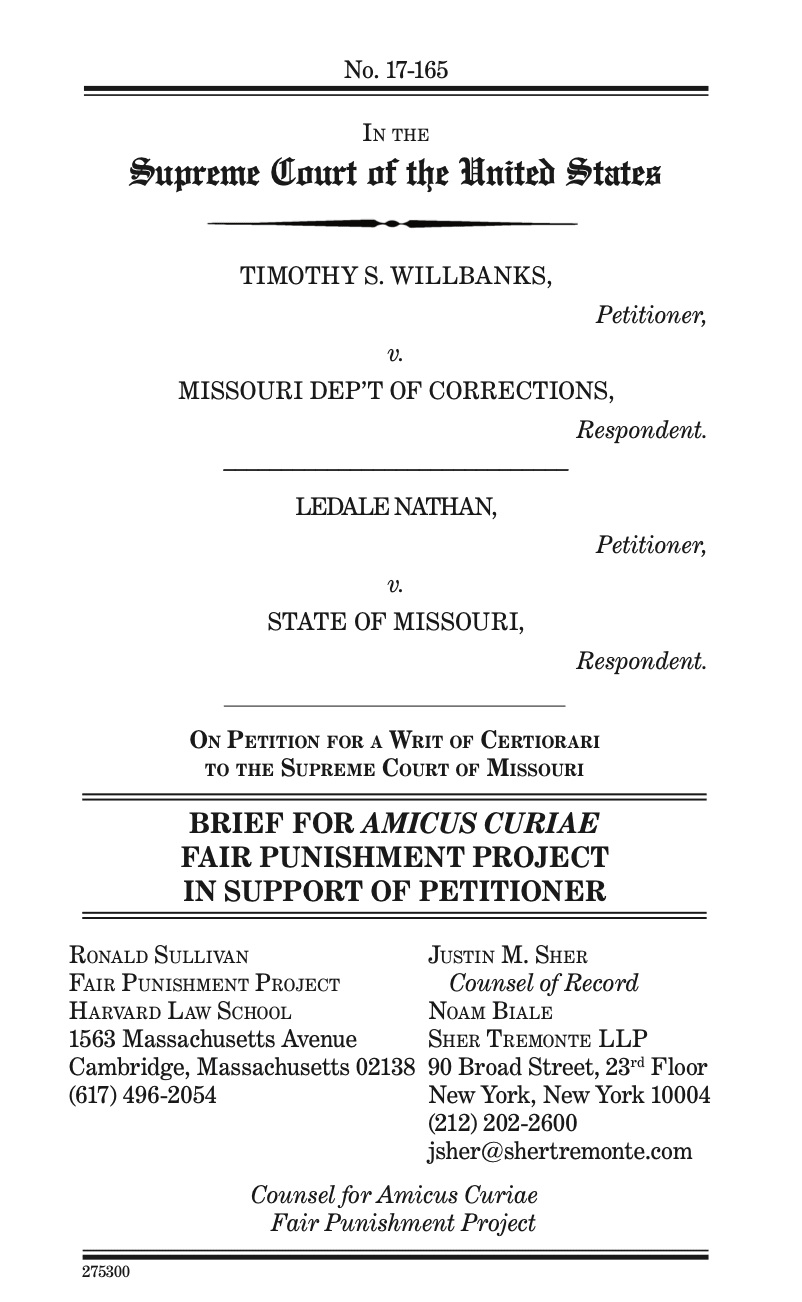
Summary of Argument
Petitioners Willbanks and Nathan have asked this Court to determine whether the decisions in Graham v. Florida, 560 U.S. 48 (2010) and Miller v. Alabama, 567 U.S. 460 (2012), apply with equal force to children subject to aggregate terms of years, imposed consecutively for multiple offenses, that constitute de facto life sentences. The larger questions suggested by these cases and others like them, are: To what extent does the Court’s juvenile jurisprudence impact how juveniles, as a whole, may be treated in the criminal justice system? Does the Eighth Amendment require that incarcerative sentences, when imposed upon children, have a rehabilitative focus? For the reasons set forth in this brief, Amicus urges the Court to grant certiorari to clarify further, as it has done in prior cases, that children are constitutionally entitled to unique treatment within the criminal justice system with a special focus on their rehabilitation.
“Protection against disproportionate punishment is the central substantive guarantee of the Eighth Amendment,”Montgomery v. Louisiana, 136 S. Ct. 718, 732 (2016). “A sentence lacking any legitimate penological justification is by its nature disproportionate to the offense.” Graham, 560 U.S. at 71. This Court’s jurisprudence recognizes that, once a child has been rehabilitated and is fit to reenter society, his continued confinement lacks penological justification and is therefore unconstitutional. The Court should grant the petition and hold that this principle applies with equal force to all juveniles sentenced in the criminal justice system, whether convicted of a single offense or multiple offenses, sentenced to life-without- parole or a lengthy term of years.